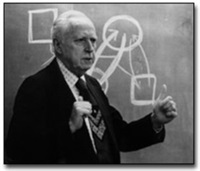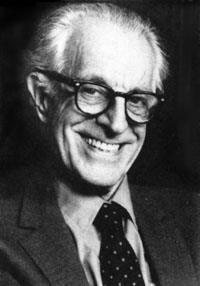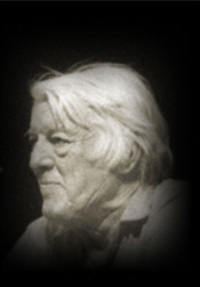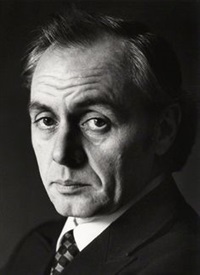EP85 Panel 14 - Therapeutic Uses of Humor - Murray Bowen, MD; Albert Ellis, PhD; Robert L. Goulding, MD; Ronald D. Laing, MD
- Average Rating:
- Not yet rated
- Topic Areas:
- Topical Panels | Humor | Psychotherapy | Therapist Development
- Categories:
- Evolution of Psychotherapy | Evolution of Psychotherapy 1985 | Pioneers in Couples and Family Therapy
- Faculty:
- Murray Bowen, MD | Albert Ellis, PhD | Robert L. Goulding, MD | Ronald Laing, MD
- Duration:
- 57 Minutes
- Format:
- Audio Only
- Original Program Date:
- Dec 14, 1985
- License:
- Never Expires.
Description
Description: These pioneering therapists explore humor's healing potential in psychotherapy, sharing innovative techniques for using laughter as a transformative therapeutic tool.
Moderated by John C Racy, MD.
Educational Objectives:
- To compare and contrast clinical and philosophical perspectives of experts.
*Sessions may be edited for content and to preserve confidentiality*
Credits
Faculty

Murray Bowen, MD Related Seminars and Products
Murray Bowen (31 January 1913 in Waverly, Tennessee – 9 October 1990) was an American psychiatrist and a professor in psychiatry at the Georgetown University. Bowen was among the pioneers of family therapy and founders of systemic therapy. Beginning in the 1950s, he developed a systems theory of the family. From 1954 to 1959, Bowen worked in the National Institute of Mental Health, Bethesda, Maryland, where he continued to develop the theory that would be named after him: Bowen Theory.[4] At that time, family therapy was still only a by-product of theory. Bowen did his initial research on parents who lived with one adult schizophrenic child, which he thought could provide a paradigm for all children. After defining the field of family therapy he started integrating concepts with the new theory. He claimed that none of this had previously been described in the psychological literature. What began the first year became known nationally in about two years.
From 1959 to 1990 he worked at the Georgetown University Medical Center in Washington DC as clinical professor at the department of Psychiatry, and later as director of Family Programs and founder of a Family Center.

Albert Ellis, PhD Related Seminars and Products
Albert Ellis, PhD, was an American psychologist who in 1955 developed Rational Emotive Behavior Therapy (REBT). He held M.A. and Ph.D. degrees in clinical psychology from Columbia University and American Board of Professional Psychology (ABPP). He also founded and was the President of the New York City-based Albert Ellis Institute for decades.
He is generally considered to be one of the originators of the cognitive revolutionary paradigm shift in psychotherapy and one of the founders of cognitive-behavioral therapies.[2]
Based on a 1982 professional survey of US and Canadian psychologists, he was considered as the second most influential psychotherapist in history (Carl Rogers ranked first in the survey; Sigmund Freud was ranked third).[3][4] Psychology Today noted, "No individual—not even Freud himself—has had a greater impact on modern psychotherapy."[5]

Robert L. Goulding, MD Related Seminars and Products
Robert Goulding, MD, is one of the leading exponents of Transactional Analysis. Along with his wife Mary Goulding, they developed an approach called Redecision Therapy. Redecision Therapy also includes unique elements based on the Goulding’s own experiences as seasoned psychotherapists. Their goal was to create a psychotherapy, based on the strengths and complimentary objectives of Gestalt therapy and Transactional Analysis, that was both brief and highly effective. Robert Goulding received his M.D. in 1944 from the University of Cincinnati and practiced general medicine until he switched to psychiatry in 1958. With his wife Mary, he founded the Wester Institute for Group and Family Therapy in Watsonville, California, and authored two books. Dr. Goulding is a Distinguished Life Fellow and member of the Board of Directors of the American Group Psychotherapy Association. He served as president of the American Academy of Psychotherapists. An extraordinarily talented therapist, he has synthesized Transactional Analysis and Gestalt into his own model, Redecision therapy.

Ronald Laing, MD Related Seminars and Products
Ronald David Laing, usually cited as R. D. Laing, was a Scottish psychiatrist who wrote extensively on mental illness – in particular, the experience of psychosis. R.D. received his M.D. from Glasgow University. Laing's name comes to mind when one thinks of practitioners who have been most effective at challenging prevailing medical thinking on schizophrenia. He has practices psychotherapy for more than 35 years and has authored 11 volumes.
Laing teaches and practices in London. Formerly he served as Chairman of The Philadelphia Association; was associated with the Tavistock Clinic; and was a Fellow of The Foundations Fund for Research in Psychiatry.


